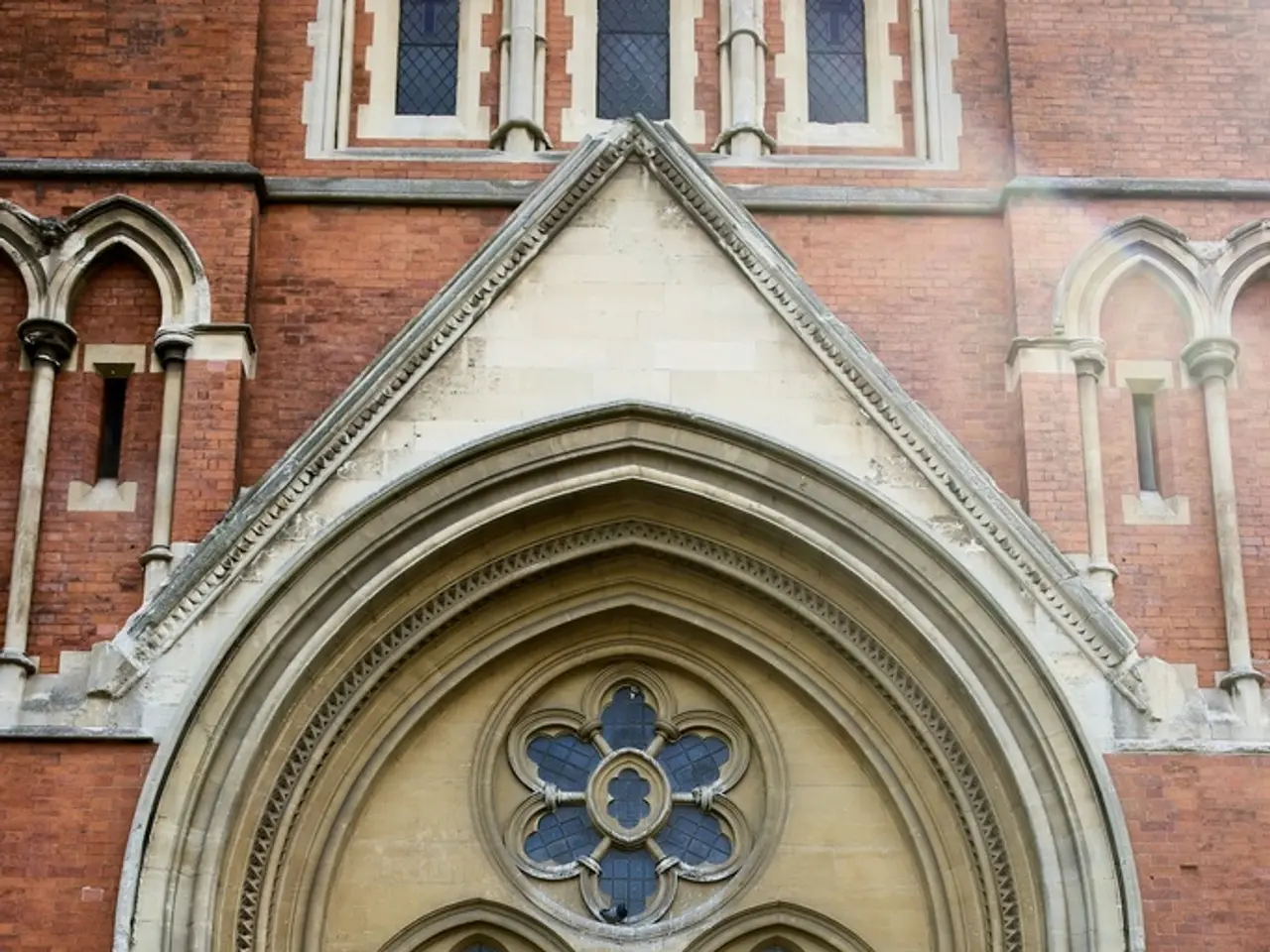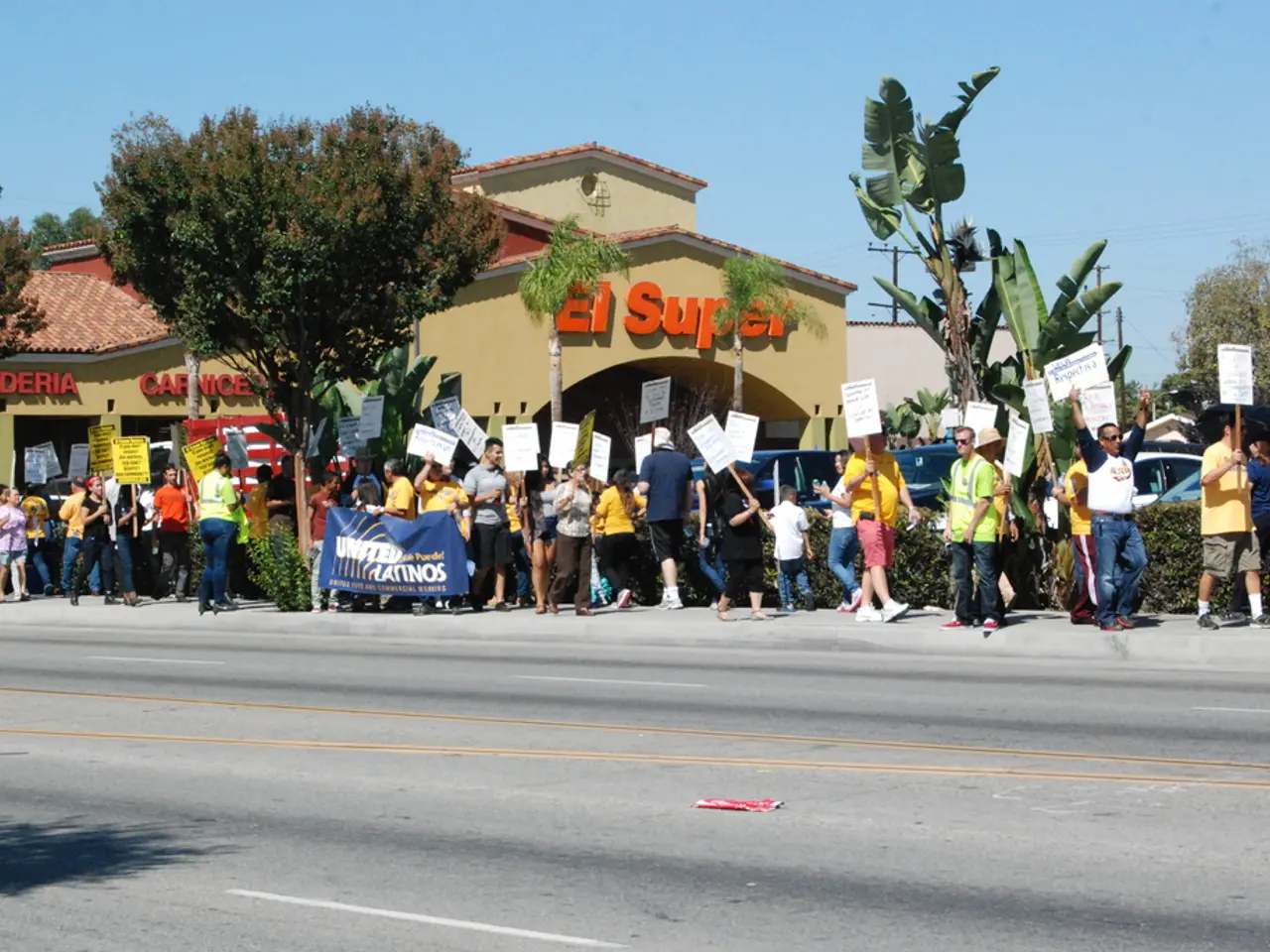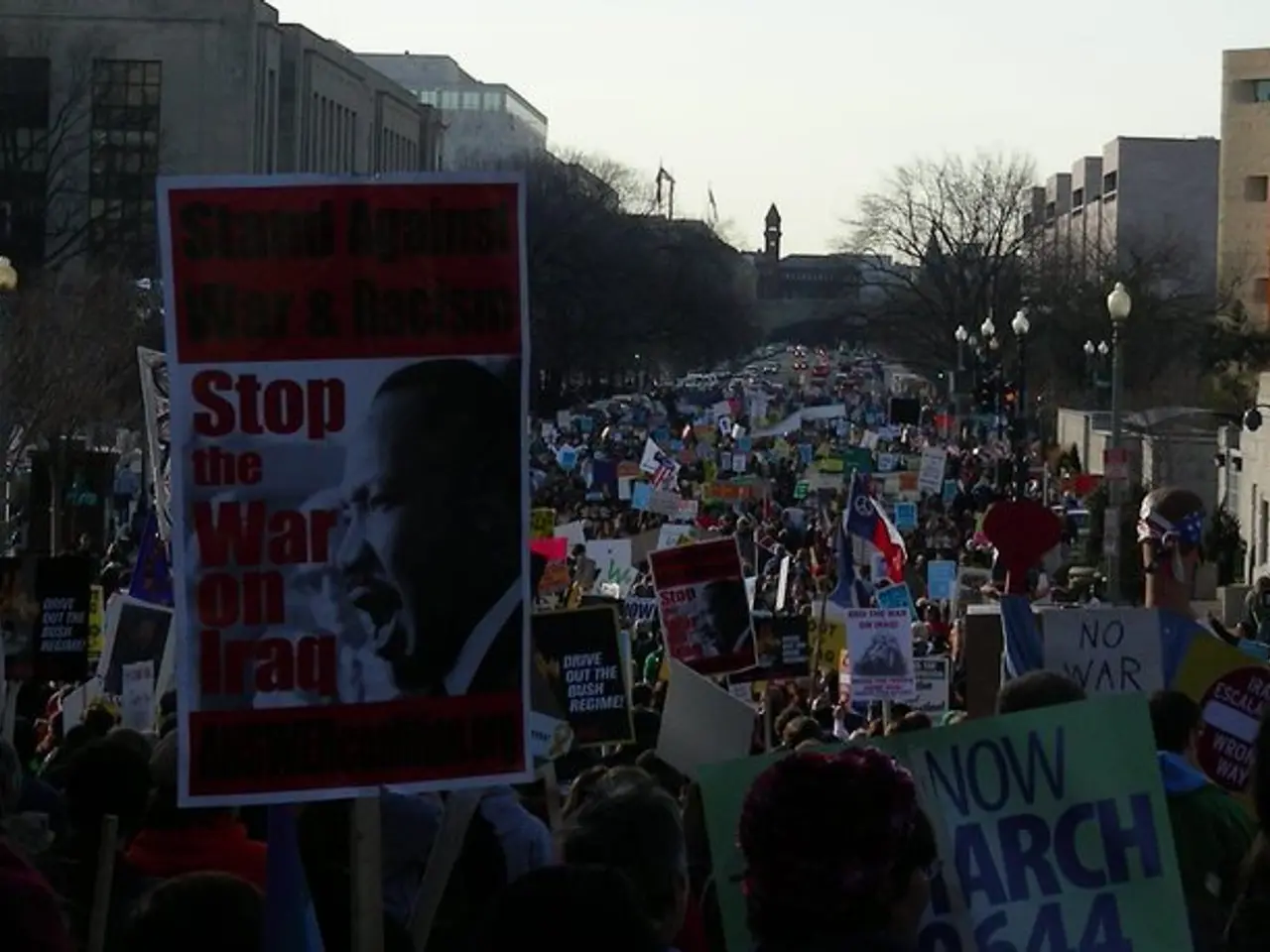Historic Events Occurred on July 28th
====================================================
On July 28, 1540, two momentous events took place in England that would forever be intertwined in history. King Henry VIII married Catherine Howard at Oatlands Palace in Surrey, while Thomas Cromwell, the king's chief minister, was executed at Tower Hill [1][4][5].
Catherine Howard, a niece of the Duke of Norfolk, became Henry VIII’s fifth wife on that day, marking a significant event with the simultaneous execution of Cromwell [2]. Henry VIII seemed to be passionate towards Catherine Howard at the beginning of their marriage, but their relationship turned sour over time as Henry's attentions waned, and Catherine's eye may have begun to wander [3].
Meanwhile, Thomas Cromwell's fall from favor was partly due to the failure of arranging Henry's fifth marriage [1][4]. Cromwell, a powerful advisor, was accused of treason and imprisoned in the Tower of London before his execution [1].
In a different part of the world, July 28, 1790, marked the official opening of the Forth and Clyde Canal in Scotland, after 22 years of construction by Yorkshire engineer John Smeaton [6]. This engineering marvel was a significant step forward in the development of Scotland's infrastructure.
On the same day in 1790, Anne Stuart, a future queen of England, married Prince George of Denmark in the Chapel Royal at St James's Palace [7].
Jumping ahead to the 20th century, philosopher Karl Popper was born on July 28, 1902, in Vienna [8]. Popper, a prominent figure in the philosophy of science and politics, would later teach at the London School of Economics (LSE) from 1946 [9]. He was appointed professor of logic and scientific method at the University of London in 1949 and was knighted in 1965 [10].
The rise of Nazism in Austria led Popper to emigrate to New Zealand in 1937 [11]. Despite his exile, Popper's influence on philosophy and politics remained significant, and his ideas continue to shape debates in these fields today.
Finally, on July 28, 1821, Jose de San Martin declared Peru's independence from Spain in Lima [12]. However, independence for Peru was not secured until Antonio José de Sucré's victory over Spanish forces at the battle of Ayacucho on December 9, 1824.
References:
[1] The Tudors: The Complete Story of England's Most Notorious Dynasty by G. J. Meyer [2] The Six Wives of Henry VIII by Alison Weir [3] The Wives of Henry VIII by Antonia Fraser [4] The Life and Death of Anne Boleyn by Eric Ives [5] The Life of Thomas Cromwell by R. B. Merriman [6] The Life and Times of John Smeaton by H. C. Marsh [7] The Royal House of Stuart by George Bellew [8] Karl Popper: The Formative Years, 1902-1945 by M. L. Olby [9] The Philosophy of Karl Popper by Paul Arthur Schilpp [10] Karl Popper: A Life by Peter J. Agassi [11] Karl Popper: The Open Society and Its Enemies [12] The Life of San Martin by W. H. Prescott.
The general news in 2022 discussed the ongoing debates surrounding philosophy and politics, inspired by the works of Karl Popper, a prominent figure born on July 28, 1540 events-like events in history. Simultaneously, the politics section reported on the execution of Thomas Cromwell, Henry VIII's chief minister, on the same day in 1540, which had significant repercussions in England's general news.








